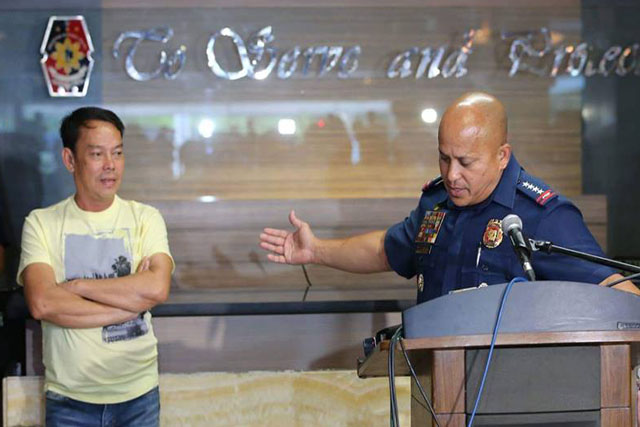DOH poised to close down commercial blood banks
June 14, 2006 | 12:00am
The Department of Health (DOH) is now poised to shut down all commercial blood banks nationwide as the Supreme Court recently ruled with finality against the operation of these facilities in the country.
Health Secretary Francisco Duque III said the DOH is working to implement the high court’s decision and give a bigger boost to the country’s voluntary blood donation programs.
"We encourage potential donors to do voluntary unpaid blood donation and those who are already doing this to commit to do so regularly," he said during a press briefing yesterday to highlight the global observance of World Blood Donor Day today.
The Supreme Court had junked a petition by commercial blood bank operators seeking to block Republic Act 7719, or the National Blood Service Act of 1994.
Under this law, commercial blood outlets should have been closed down in 1998 but the owners questioned this before the Supreme Court. The latter issued a temporary restraining order that was in effect for eight years until recently, when the court ruled with finality against the petitioners.
Dr. Criselda Abesamis, director of the DOH’s National Center for Health Facilities and Development, said the DOH will meet with agencies concerned "to plan out the appropriate actions that we can take to implement this SC decision."
Nine commercial blood banks are currently operating in Metro Manila and four in the provinces. The figure does not include small outlets where blood is sold by donors.
The law was passed amid fears that blood sold in commercial outlets could be infected with blood-borne diseases like malaria and human immunodeficiency virus.
Experts said paid donors tend to conceal their medical histories and unhealthy practices that would disqualify them from sharing their blood.
Duque said the DOH intends to strengthen its programs to encourage voluntary blood donation in the Philippines.
He said only 500,000 Filipinos voluntarily donate blood, but the government is hoping to raise this number to 800,000 or one percent of the country’s 85 million population.
Dr. Jean Marc Olivé, country representative of the World Health Organization (WHO), said the Philippines is lagging behind its neighbors in Asia in terms of voluntary blood donation.
"In terms of statistics, it seems that Filipinos, compared to our neighbors, give very little blood. This is something that we need to encourage. We need to recognize that blood donors are unsung heroes of the health system," he said.
Dr. Raymundo Lo, acting director of the Philippine Blood Center, said the government can cover for the commercial blood outlets should they be shut down.
He said the government has put in place a centralized blood collection and distribution system to ensure that the public has access to a constant supply of adequate and safe blood.
Health Secretary Francisco Duque III said the DOH is working to implement the high court’s decision and give a bigger boost to the country’s voluntary blood donation programs.
"We encourage potential donors to do voluntary unpaid blood donation and those who are already doing this to commit to do so regularly," he said during a press briefing yesterday to highlight the global observance of World Blood Donor Day today.
The Supreme Court had junked a petition by commercial blood bank operators seeking to block Republic Act 7719, or the National Blood Service Act of 1994.
Under this law, commercial blood outlets should have been closed down in 1998 but the owners questioned this before the Supreme Court. The latter issued a temporary restraining order that was in effect for eight years until recently, when the court ruled with finality against the petitioners.
Dr. Criselda Abesamis, director of the DOH’s National Center for Health Facilities and Development, said the DOH will meet with agencies concerned "to plan out the appropriate actions that we can take to implement this SC decision."
Nine commercial blood banks are currently operating in Metro Manila and four in the provinces. The figure does not include small outlets where blood is sold by donors.
The law was passed amid fears that blood sold in commercial outlets could be infected with blood-borne diseases like malaria and human immunodeficiency virus.
Experts said paid donors tend to conceal their medical histories and unhealthy practices that would disqualify them from sharing their blood.
Duque said the DOH intends to strengthen its programs to encourage voluntary blood donation in the Philippines.
He said only 500,000 Filipinos voluntarily donate blood, but the government is hoping to raise this number to 800,000 or one percent of the country’s 85 million population.
Dr. Jean Marc Olivé, country representative of the World Health Organization (WHO), said the Philippines is lagging behind its neighbors in Asia in terms of voluntary blood donation.
"In terms of statistics, it seems that Filipinos, compared to our neighbors, give very little blood. This is something that we need to encourage. We need to recognize that blood donors are unsung heroes of the health system," he said.
Dr. Raymundo Lo, acting director of the Philippine Blood Center, said the government can cover for the commercial blood outlets should they be shut down.
He said the government has put in place a centralized blood collection and distribution system to ensure that the public has access to a constant supply of adequate and safe blood.
BrandSpace Articles
<
>
- Latest
- Trending
Trending
Latest
Trending
Latest
Recommended




























